P.E.I. event planner pitching wheat bran plates and cutlery to replace plastics
Mark Carr-Rollitt wants to gauge interest from farmers' markets and festivals across the region
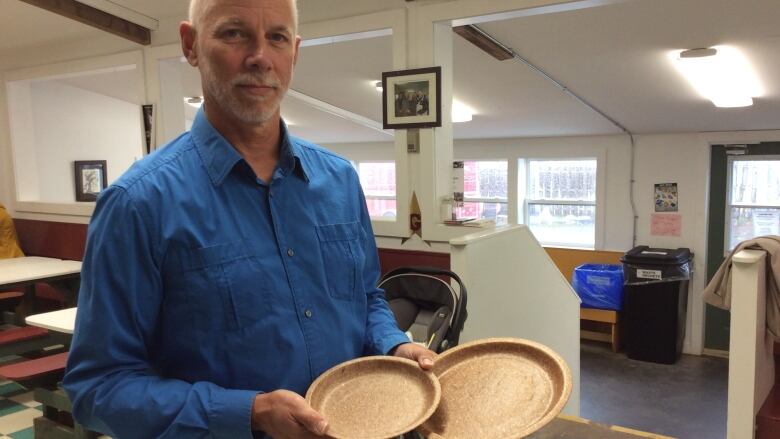
WavesofChangeis a CBC series exploring the single-use plastic we're discarding, and why we need to clean up our act. You can be part of the community discussion by joiningour Facebook group.
An event planner from Charlottetown, P.E.I., is hoping a product made in Poland will be a way to reduce single use plastics in the Maritimes.
Biotrem makes plates, bowls and cutlery from wheat bran.
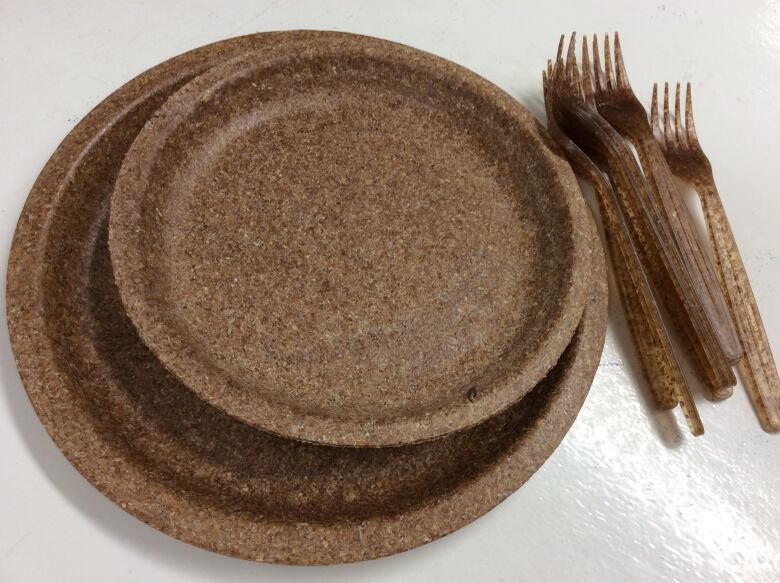
"I think I'm like lots of people, you look around there's plastic everywhere, we seem to be drowning in it," said Mark Carr-Rollitt, owner of Transform Events and Consulting.
"Also because I'm an event planner I see festivals and how much plastic gets generated there, how much waste so I've been thinking about it for a while."
- What's SUP, anyway? Here's what you need to know about single-use plastics
- What are bioplastics anyway? Confusion over term hinders fight against waste, expert says
Gauging interest
Last year, Carr-Rollitt helped to organize the Atlantic Green Expo.
"You start to do research on different companies doing different things and then I came across this company in Poland and I reached out," said Carr-Rollitt.
"The interesting thing about these plates is that it's just pressure and a little bit of water, mainly it's pressure that makes them."
Now Carr-Rollitt is trying to see if he can find enough interest to justify bringing over a container load of the wheat bran products.
"It costs about $20,000 to bring a container over so you'd have to have at least a few farmers' markets in the region, maybe some small retail, maybe a couple of festivals," Carr-Rollitt said.
"You can put a lot of plates in a container."
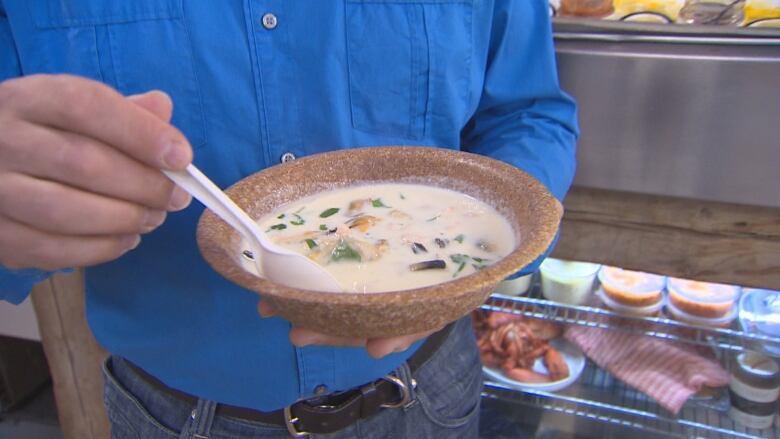
Going to cost more
Carr-Rollitt knows cost will be a factor. He's still crunching the numbers including shipping and duties.
"Any of the alternatives are going to cost more than plastic, that's the bottom line," Carr-Rollitt said.
"The trick for somebody like me is to get the pricing as close as possible. Everybody needs to make a little bit of money. But it definitely will be more than plastic."
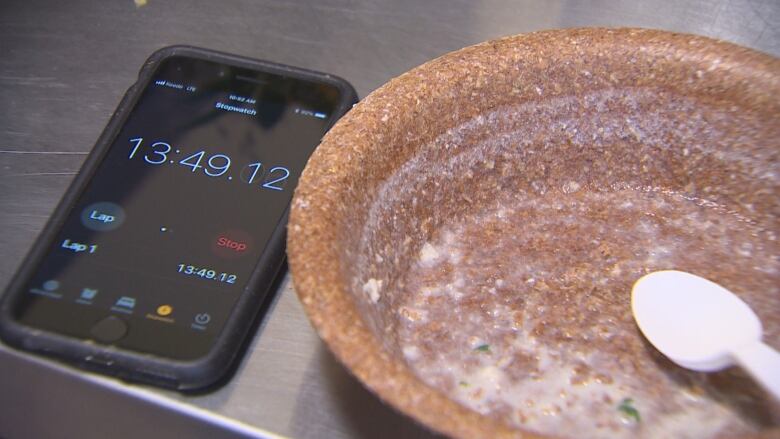
'Just a few cents more'
Tyler Gallant of Gallant's Shellfish and Seafood at the Charlottetown Farmers' Market has already made the switch to biodegradable options.
"We use some that are made out of cardboard and cutlery that's made out of cornstarch so they break down quicker than your traditional plastics and styrofoams," Gallant said.
"We chose to either take the hit ourselves or transfer a bit of the cost onto our consumer, it's just a few cents more."
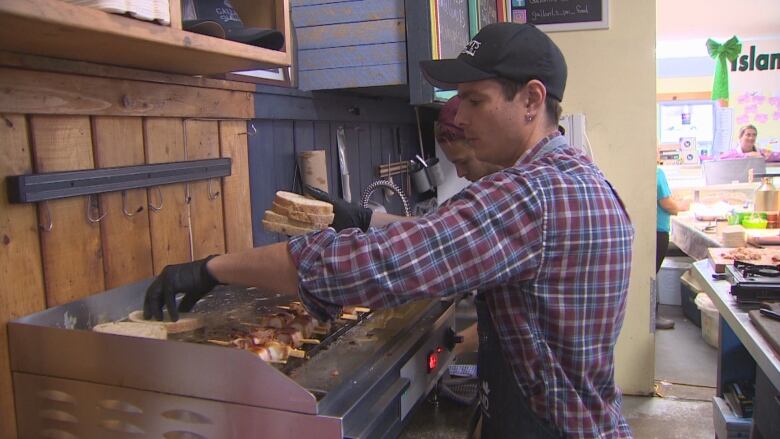
Gallant was interested to see the wheat bran products from Poland.
"It's really cool. It's a really interesting product that's got some serious potential," Gallant said.
Making changes
Bernie Plourde, manager of the Charlottetown Farmers' Market saidvendors have been working hard to find replacements for single use plastics, including compostable cups for hot and cold beverages.
He saida couple of food vendors are now using real plates and cutlery they wash after every use.
They're still looking for bags that would be compostable that they can put lettuce and other vegetables in.
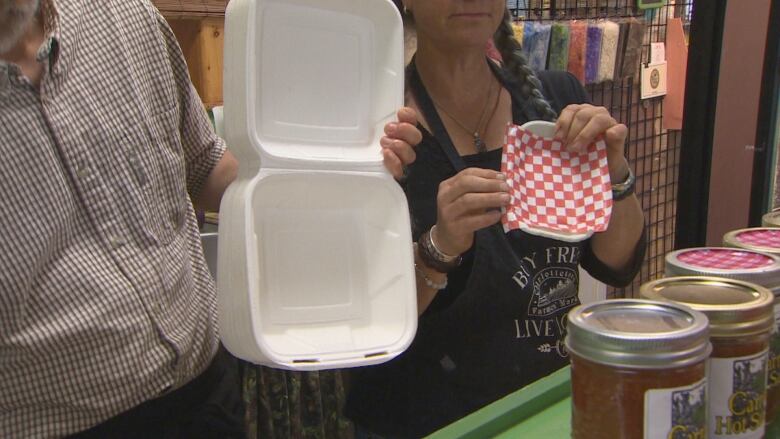
"The cost is a bit prohibitive and farmers especially work on a low margin of profit," Plourde said.
"Even though we talk about the cost, more and more of the vendors are taking in that five cents per unit because they believe in saving the environment."
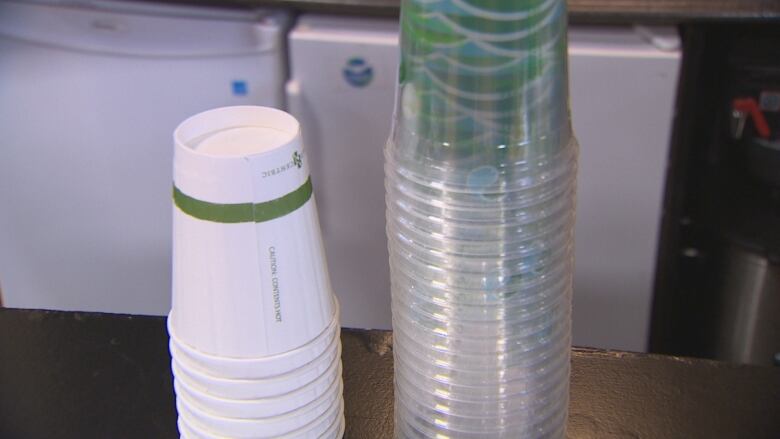
'We can't live in plastic'
Carr-Rollitt saidif the wheat bran products catch on, the next step could be establishing a production facility.
"Eventually it would be great if we could actually make the products here on Prince Edward Island," said Carr-Rollitt.
"There's employment benefitsso there's lots of upside but you've got to go one step at a time."
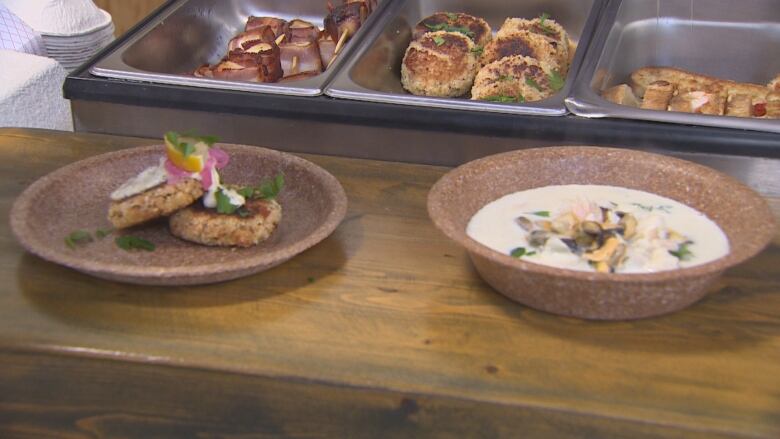
Carr-Rollitt believes the time is right for a project like his.
"The plastic straw thing, that just happened, so lots of places are replacing plastic with paper," Carr-Rollitt said.
"We're kind of addicted to it, so at some point, we're going to have to figure that out because we can't live in plastic."












_(720p).jpg)


 OFFICIAL HD MUSIC VIDEO.jpg)
.jpg)



























































































